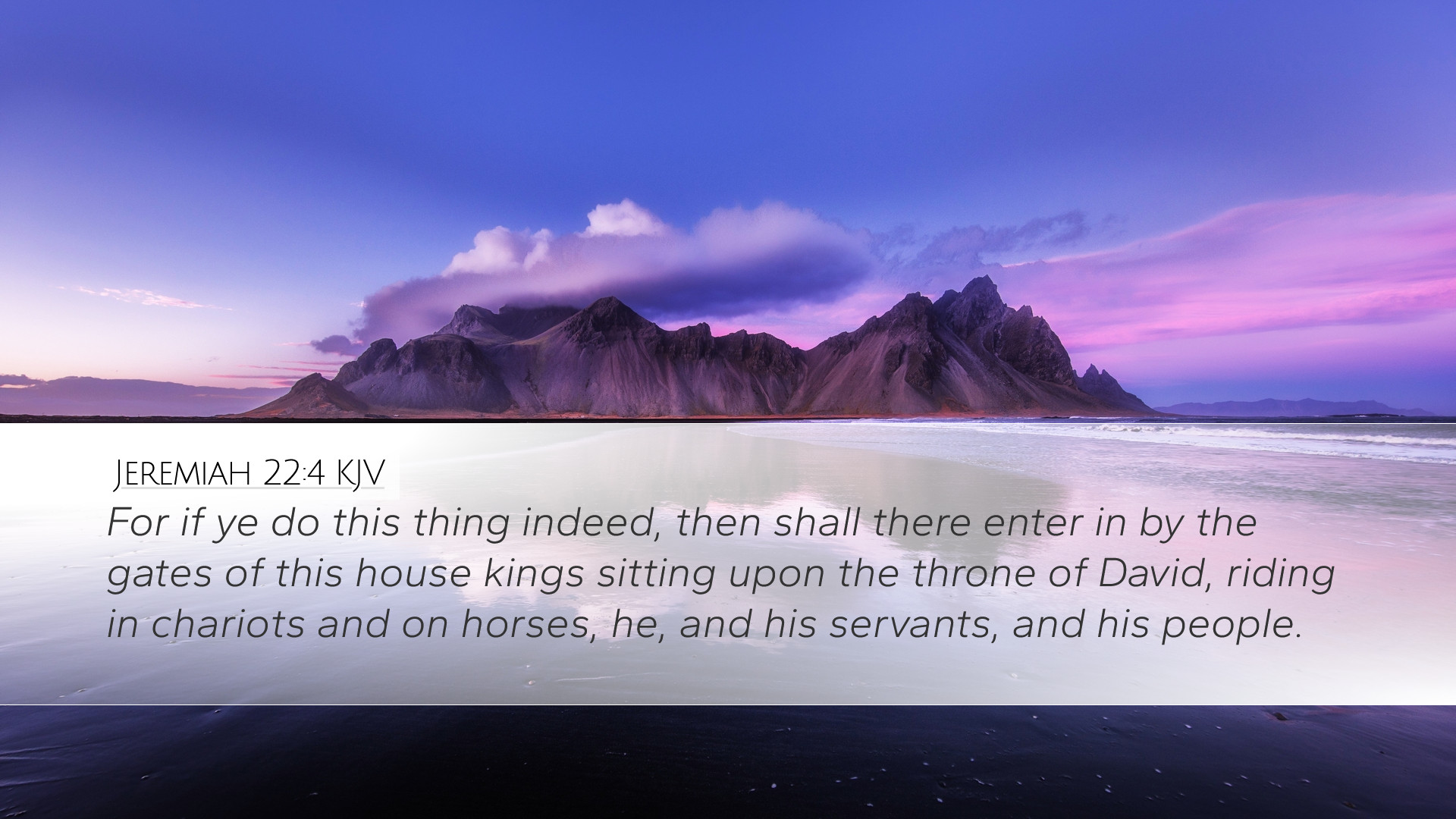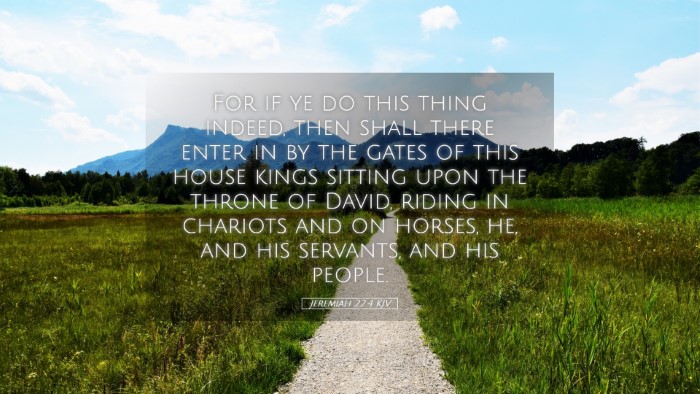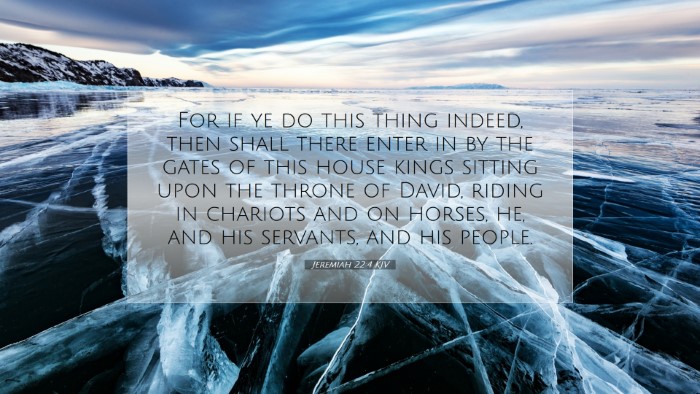Commentary on Jeremiah 22:4
Jeremiah 22:4 states, "For if you do indeed do these things, then shall there enter in by the gates of this house kings sitting upon the throne of David, riding in chariots and on horses, they, and their servants and their people."
This verse serves as a profound reminder of the conditional nature of God’s promises and the overarching principles of justice and righteousness that govern His covenant with His people.
Contextual Framework
The context of this passage is critical for proper interpretation. Jeremiah is addressing the house of Judah, specifically the king and his officials, during a time of moral decay and impending judgment. The preceding chapters outline God’s intentions to bring judgment upon Jerusalem for their idolatry and failure to follow the covenant's stipulations.
Theological Significance
In this verse, God emphasizes the importance of obedience to divine mandates. Matthew Henry notes that the blessings associated with David's line are contingent upon righteous governance and ethical behavior. The promise of future kings is tied to the people’s adherence to God's laws, illustrating a recurring biblical theme: obedience leads to blessing, while disobedience brings about judgment.
Righteous Rule
The mention of kings riding in chariots and on horses signifies the strength and grandeur of a righteous rule. Adam Clarke elaborates on this by indicating that chariots and horses represent military power and established authority. Thus, prosperity and security are results of divinely sanctioned leadership characterized by justice and integrity.
Warnings and Promises
Albert Barnes highlights that this promise is not absolute but conditional. The verse underscores the need for the leaders of Judah to align their lives and governance with God's standards. The assurance of future kings on the throne of David reflects God's fidelity to His covenant but also serves as a stern warning about the consequences of failing to uphold justice.
Applications for Today
-
The Role of Leadership:
This passage has enduring relevance for contemporary leaders. It serves as a reminder that authority comes with responsibilities to uphold righteousness and justice. Pastors and spiritual leaders must seek to embody the principles laid out in this verse, leading their congregations with integrity.
-
Covenantal Faithfulness:
Believers today are called to reflect upon their own faithfulness to God’s covenant. The promise of blessing is tied to obedience, and true discipleship involves a commitment to live out God’s commands in everyday life.
-
The Importance of Community:
The call is not merely for individual piety but for a collective pursuit of righteousness within a community. The actions of leaders have a ripple effect on the nation, as the moral and spiritual conditions of the community reflect their values and priorities.
Conclusion
Jeremiah 22:4 encapsulates essential truths about divine governance, the nature of blessings, and the responsibilities of both rulers and the ruled. The historical context of this verse reveals the serious consequences of turning away from God, while its theological implications resonate profoundly with the responsibilities of modern-day believers.
As we contemplate this scripture, may we strive for a community and leadership that honors God, ensuring that blessings flow from our commitment to justice, righteousness, and obedience. It serves as both an encouragement and a warning for today's believers, that we might rekindle our dedication to God’s ways and the truth found in His Word.


